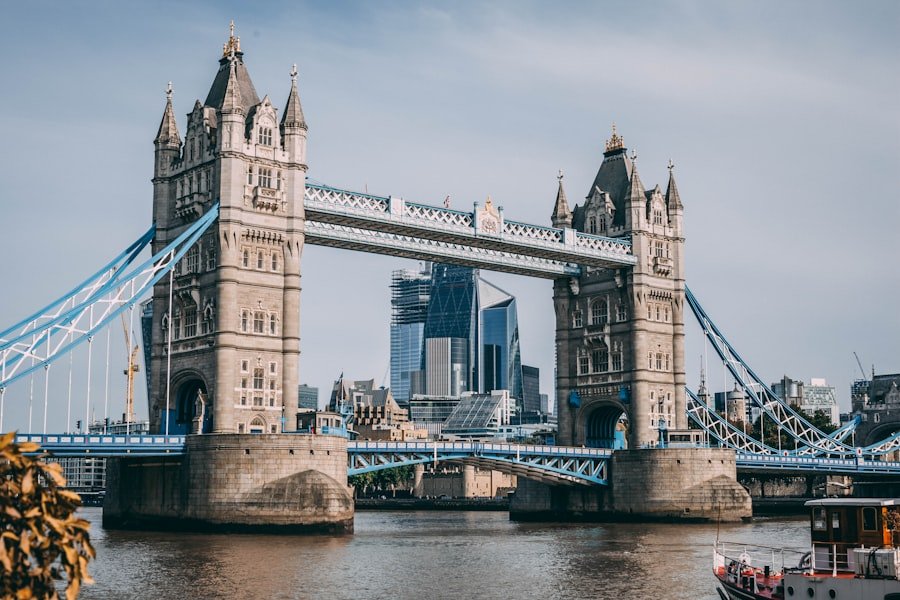

The Art of Storytelling: An Advanced Workshop We Offer in Oslo
Storytelling is an ancient art form that transcends cultures and generations, serving as a means of communication, entertainment, and education. In the Advanced Storytelling Workshop, participants are invited to delve deeper into the intricacies of narrative construction, exploring the nuances that elevate a simple tale into a compelling narrative. This workshop is designed for those who have a foundational understanding of storytelling and are eager to refine their skills, pushing the boundaries of their creativity.
Through a combination of theoretical insights and practical exercises, attendees will emerge with a richer understanding of what makes a story resonate with audiences. The workshop is structured to foster an environment of collaboration and exploration. Participants will engage in discussions, share their work, and receive constructive feedback from both peers and facilitators.
This interactive approach not only enhances learning but also builds a community of storytellers who can support one another in their creative journeys. By the end of the workshop, participants will not only have honed their storytelling abilities but also gained confidence in their unique voices as writers. Whether for professional growth or personal confidence, our English courses at the NLS Norwegian Language School are designed to help you succeed.
Table of Contents
ToggleKey Takeaways
- The Advanced Storytelling Workshop offers a comprehensive approach to enhancing storytelling skills.
- Understanding the elements of a compelling story is crucial for engaging and captivating an audience.
- Developing complex characters and relationships adds depth and authenticity to storytelling.
- Crafting dynamic settings and atmospheres can create a rich and immersive storytelling experience.
- Exploring advanced plot structures and narrative techniques can elevate the impact of a story.
Understanding the Elements of a Compelling Story
At the heart of every captivating story lies a set of essential elements that work in harmony to engage readers. These elements include plot, character, setting, conflict, and theme. Understanding how these components interact is crucial for any storyteller aiming to craft narratives that captivate and resonate.
The workshop will begin by dissecting these elements, allowing participants to see how they function individually and collectively within a story. Plot serves as the backbone of any narrative, guiding the reader through a series of events that create tension and resolution. However, it is not merely about what happens; it is about how those events unfold and the emotional journey they evoke.
Characters breathe life into the plot, providing depth and relatability. The workshop will emphasize the importance of creating multi-dimensional characters whose desires and conflicts drive the narrative forward. By examining successful stories across various genres, participants will gain insights into how these elements can be manipulated to create compelling arcs that keep readers engaged.
Developing Complex Characters and Relationships

Characters are often the most memorable aspect of any story, and developing them into complex individuals is essential for creating an emotional connection with readers. In this segment of the workshop, participants will explore techniques for crafting characters that feel real and relatable. This includes understanding their motivations, fears, and desires, as well as how these traits influence their relationships with others in the narrative.
Relationships between characters can add layers of complexity to a story, providing opportunities for conflict and growth. The workshop will encourage participants to think critically about how characters interact with one another and how these dynamics can drive the plot forward. Through exercises focused on dialogue and interaction, attendees will learn to create authentic relationships that reflect the intricacies of human connection.
By the end of this section, participants will have a toolkit for developing characters that not only serve the plot but also resonate with readers on a personal level.
Crafting Dynamic Settings and Atmospheres
A well-crafted setting can transport readers into the world of the story, enhancing their experience and deepening their emotional engagement. In this part of the workshop, participants will learn how to create dynamic settings that are not just backdrops but integral components of the narrative. The setting can influence character behavior, shape plot developments, and evoke specific moods or atmospheres.
Participants will explore various techniques for world-building, from detailed descriptions to sensory language that immerses readers in the environment. The workshop will also address how different settings can reflect themes or character arcs, adding another layer of meaning to the story. By examining examples from literature and film, attendees will gain insights into how effective settings can elevate a narrative from ordinary to extraordinary.
Ultimately, this section aims to empower participants to create vivid worlds that captivate readers’ imaginations.
Exploring Advanced Plot Structures and Narrative Techniques
As storytellers become more adept at crafting narratives, they often seek to experiment with advanced plot structures and narrative techniques that challenge traditional storytelling norms. This segment of the workshop will introduce participants to various structures beyond the classic three-act format, such as non-linear narratives, circular plots, and fragmented storytelling. By understanding these structures, writers can create more innovative and engaging stories that surprise and delight their audiences.
In addition to structural experimentation, participants will explore narrative techniques such as unreliable narrators, foreshadowing, and flashbacks. These tools can add depth and complexity to a story, inviting readers to engage more actively with the text. Through practical exercises and group discussions, attendees will have the opportunity to apply these techniques to their own work, fostering an environment of creativity and exploration.
By the end of this section, participants will be equipped with a diverse array of narrative strategies that can enhance their storytelling repertoire.
Utilizing Symbolism and Metaphor in Storytelling

Symbolism and metaphor are powerful tools in a storyteller’s arsenal, allowing writers to convey deeper meanings and themes without overt exposition. In this part of the workshop, participants will learn how to effectively incorporate symbols and metaphors into their narratives to enrich their storytelling. By using these literary devices thoughtfully, writers can create layers of meaning that resonate with readers on multiple levels.
The workshop will provide examples from literature where symbolism has been used effectively to enhance themes or character development. Participants will engage in exercises designed to help them identify potential symbols within their own stories and explore how these elements can be woven seamlessly into their narratives. By understanding the significance of symbolism and metaphor, attendees will be able to elevate their writing, creating stories that linger in readers’ minds long after they have turned the last page.
Enhancing Emotional Impact and Resonance in Stories
One of the hallmarks of great storytelling is its ability to evoke emotions in readers. In this segment of the workshop, participants will explore techniques for enhancing emotional impact within their narratives. This includes understanding how to build tension, create relatable conflicts, and develop poignant moments that resonate with audiences on a personal level.
The workshop will emphasize the importance of authenticity in emotional storytelling. Participants will learn how to draw from their own experiences and emotions to create genuine moments that connect with readers. Through guided writing exercises and peer feedback sessions, attendees will have the opportunity to experiment with different approaches to emotional storytelling, ultimately discovering what resonates most with their unique voice as writers.
By focusing on emotional depth, participants will be better equipped to craft stories that leave a lasting impression on their audiences.
Mastering Dialogue and Voice in Storytelling
Dialogue is a crucial element of storytelling that can reveal character traits, advance the plot, and create tension or humor within a narrative. In this part of the workshop, participants will delve into the art of crafting authentic dialogue that feels true to each character’s voice. Understanding how to write dialogue that reflects individual personalities while also serving the story’s needs is essential for any writer looking to elevate their craft.
The workshop will provide practical exercises focused on dialogue writing techniques, including subtext, pacing, and rhythm. Participants will learn how to use dialogue not just as a means of communication but as a tool for character development and thematic exploration. By analyzing examples from literature and film, attendees will gain insights into how effective dialogue can enhance storytelling.
Ultimately, this section aims to empower participants to master dialogue as a means of enriching their narratives.
Incorporating Multiple Perspectives and Points of View
Exploring multiple perspectives within a story can add depth and complexity, allowing readers to see events through different lenses. In this segment of the workshop, participants will examine various points of view—first-person, third-person limited, omniscient—and how each choice influences the reader’s experience. Understanding when and how to shift perspectives can create dynamic narratives that engage audiences in unique ways.
The workshop will encourage participants to experiment with different narrative voices in their writing exercises. By exploring multiple perspectives within their own stories or reimagining existing narratives from alternative viewpoints, attendees will gain insights into how perspective shapes character development and plot progression. This exploration not only enhances storytelling but also fosters empathy by allowing readers to understand diverse experiences within a single narrative framework.
Experimenting with Genre and Style in Storytelling
Genre conventions can provide valuable frameworks for storytelling; however, breaking away from traditional norms can lead to innovative narratives that challenge expectations. In this part of the workshop, participants will explore various genres—such as fantasy, science fiction, romance, or literary fiction—and discuss how blending genres can create fresh storytelling opportunities. Additionally, participants will be encouraged to experiment with different writing styles—whether it be lyrical prose or minimalist dialogue—to find their unique voice as storytellers.
The workshop will provide prompts and exercises designed to inspire creativity while pushing boundaries within genre conventions. By embracing experimentation in both genre and style, attendees will discover new avenues for expression that can invigorate their writing process.
Taking Your Storytelling Skills to the Next Level
As the Advanced Storytelling Workshop comes to a close, participants will leave equipped with a wealth of knowledge and practical skills designed to elevate their storytelling abilities. From understanding essential narrative elements to mastering complex characters and innovative structures, attendees will have explored every facet of what makes a story compelling. The collaborative environment fostered throughout the workshop has not only provided valuable feedback but has also built connections among fellow storytellers who share similar passions.
Ultimately, this workshop serves as an invitation for writers to continue honing their craft beyond its conclusion. The skills learned here are not merely tools but rather stepping stones toward becoming more confident and versatile storytellers. As participants embark on their individual writing journeys armed with newfound insights and inspiration, they are encouraged to embrace experimentation and continue pushing the boundaries of their creativity—taking their storytelling skills to new heights in an ever-evolving literary landscape.
Register for a course at NLS in Oslo and start your journey to fluency.
If you want to learn Norwegian, you can register for classes here. We look forward to hearing from you and helping you become fluent in Norwegian.





